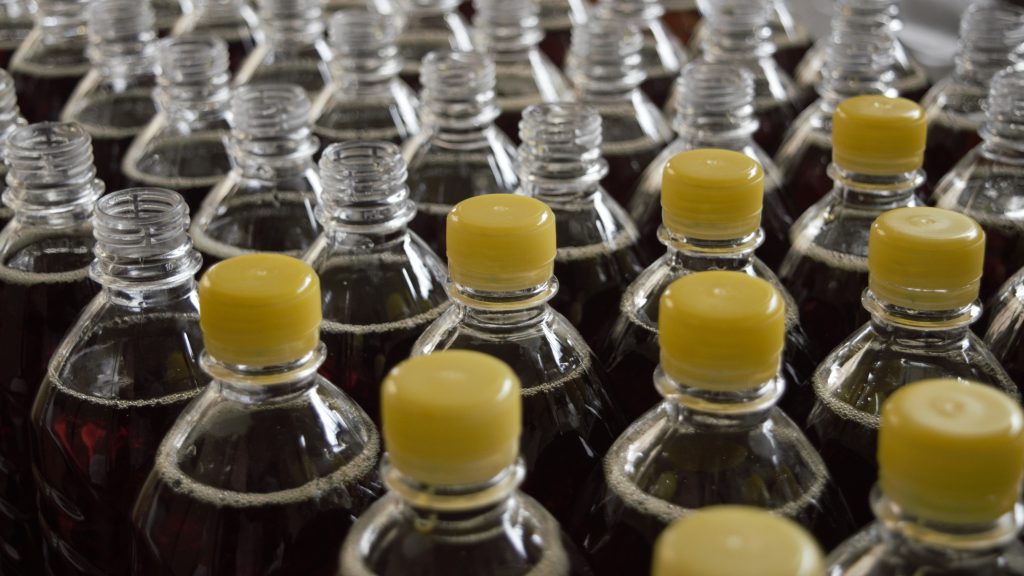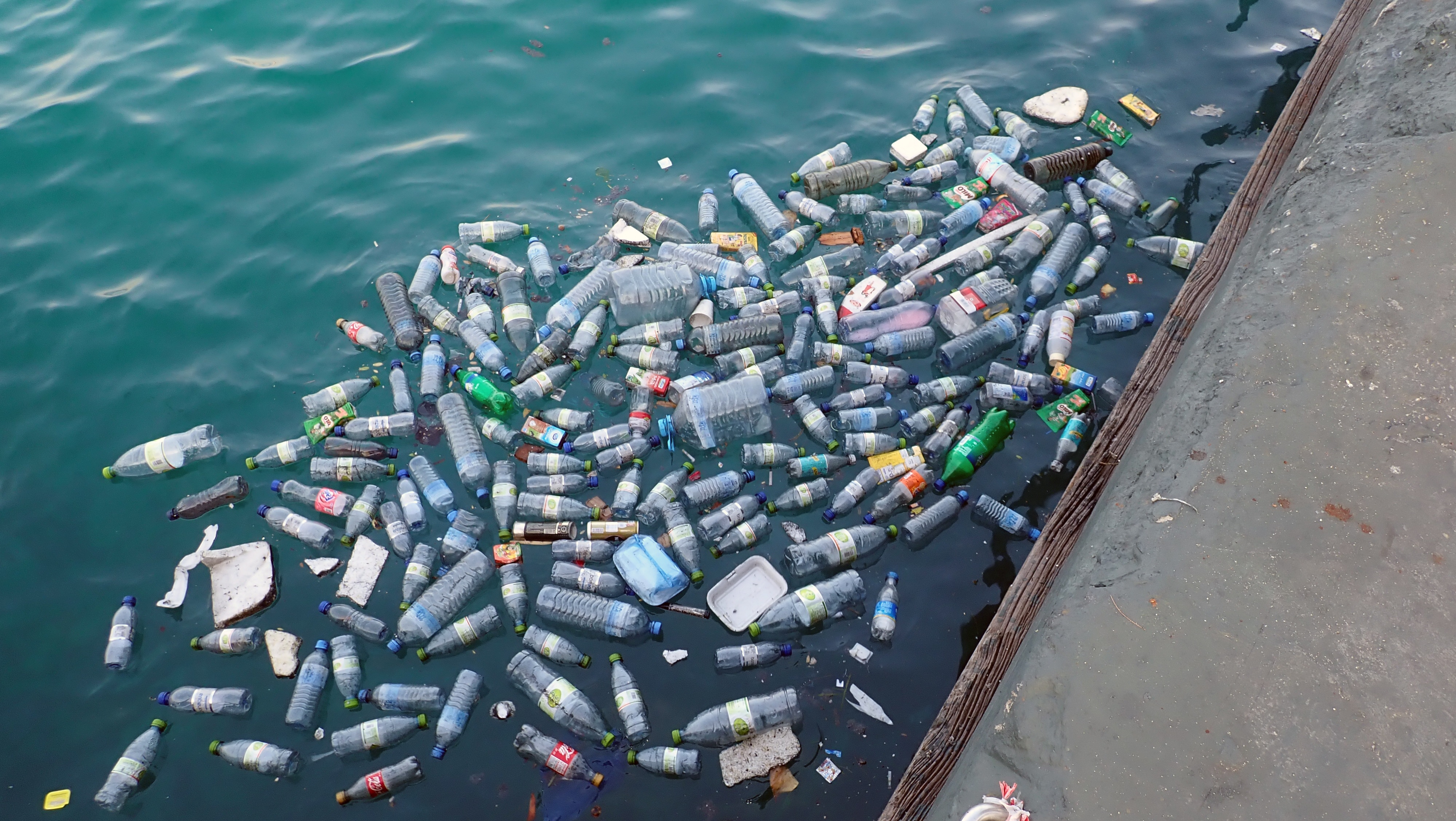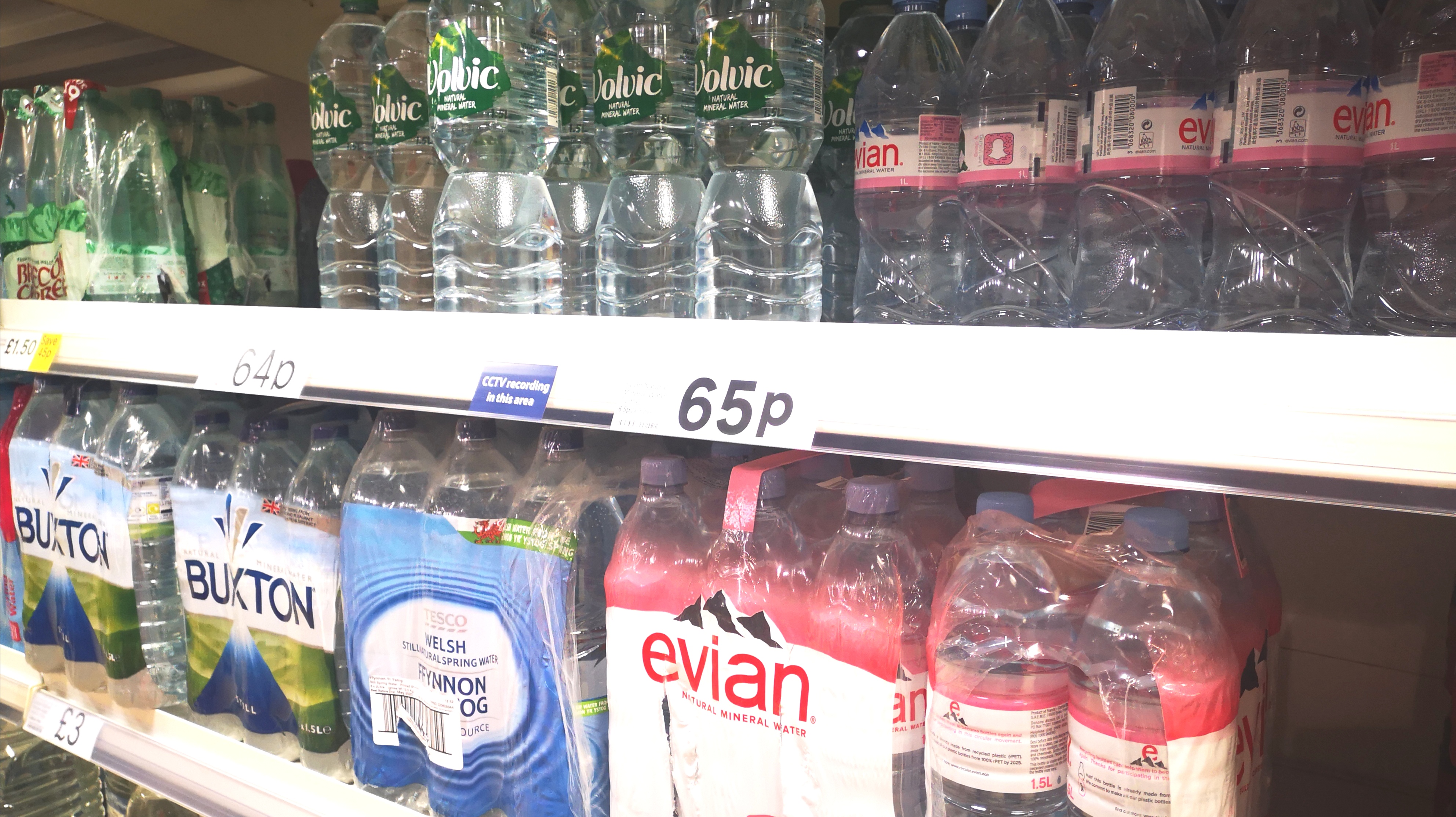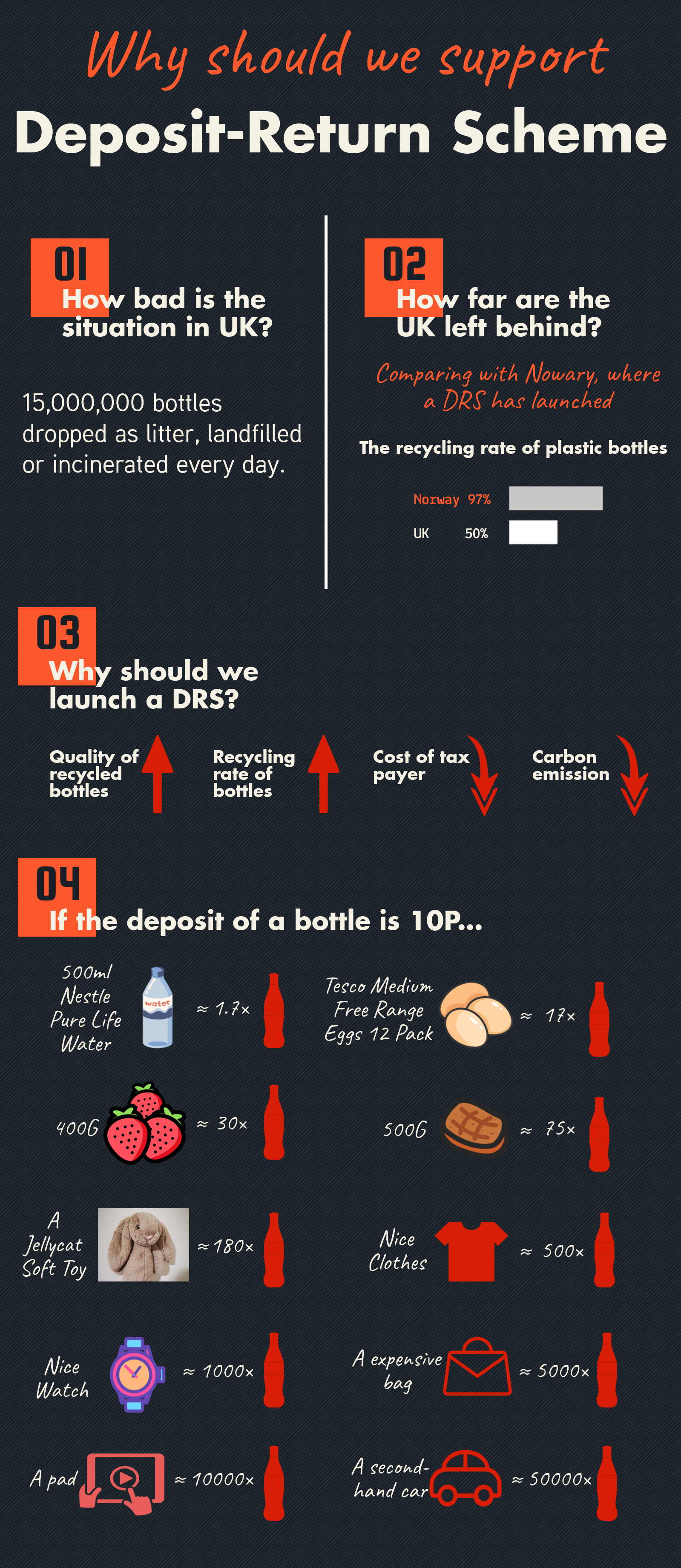While Wales already has a high recycling rate, will introducing a deposit-return scheme be the right move towards reducing single-use plastics? 
You may have already spotted this machine in many places, where people pop plastic bottles in, wait for noises and then receive a voucher, that can be redeemed against a shopping bill or donated to charity.
Consultation on #DRS expected soon. We want people to get involved and show their support when it’s launched – so watch this space. Loads of cross party support @AssemblyWales today. #StopthePlasticTide pic.twitter.com/ThvtStvYrb
— Marine Conservation Society (@mcsuk) 2019年1月30日
Since the set-up of such machines is all over some European countries for years, environmental campaigners in Wales have also been drawn to this new technique. “We are keen to create a scheme similar to Norway, which has a high return rate and raises millions for charity each year,” said Jemma Bere, Policy Manager of Keep Wales Tidy.
However, with the Scottish Government is launching a deposit-return scheme (DRS), and England operates multiple trials on the same, Wales seems to be left slightly behind, which makes people wonder, what is Wales still waiting for?
Luckily, the Welsh government has considered introducing the scheme that places a deposit when people purchase drinks and returning the deposit if people give back empty packages to a designated collection point.
People in Wales can now offer their opinions on the scheme by responding to a consultation opened by the Department for Environment Food & Rural Affairs. “I am particularly keen to explore whether a DRS for drink containers would work for Wales,” said Hannah Blythyn, Deputy Minister for Housing and Local Government.
Advocates argue that, though Wales is the world’s third-best recycling nation, it still needs to move away from being a throwaway society to a circular economy. According to Marine Conservation Society, bottles and cans have consistently been in the top 10 of beach litter finds. In 2018, on average, 53 drink containers, including plastic and glass bottles and metal cans, were found on every 100 meters of Welsh beaches.

Under that circumstance, DRS could be a financial incentive to encourage the public to recycle beverage packaging, which will increase recycling rates and reduce litter, as the previous introduction of the successful carrier bag charge in Wales has shown that putting a value on plastic items will lead to behaviour change. “The scheme will encourage more people to recycle because they will feel like they are losing money,” said Tracy Pearce, a career in Cardiff.
However, not everyone agrees that DRS is a good idea and discussions around four of the aspects surrounding this are gradually heating up.
Firstly, some local authorities are worried about the impact DRS may have on the curbside collection systems; a household collection service enabling people to currently recycle these items from their home.
Stuart Foster of Recoup, a leading authority providing expertise across the plastics recycling value chain, described in the Guardian that the deposit schemes were a distraction. “Plastic bottle recycling rate of Wales has reached 75% as a result of curbside systems, which was proof of how well this current operation is working,” he said.
Nevertheless, the fact that DRS around the world delivers recycling rates of over 90% for good quality recyclable, has reinforced the views of advocates for DRS. “Curbside schemes will not meet these rates and items collected for recycling are often contaminated,” said Wendy Dodds, Marine Conservation Society Policy and Advocacy Manager in Wales.
Secondly, there are also concerns about how the scheme will impact on those who are in the lower socioeconomic groups. “It’s ok if you got money, but if you haven’t got the money for you at the time of buying, it’s a different story, to those who are on the breadline now, it’s going to hurt that pockets even more,” said Gareth Williams, a disabled retiree in Cardiff.
Despite that, some people are convinced that even if a DRS only improves things by one percent, or if a smaller majority of people started following the scheme, it would make quite a difference. “I don’t think people would mind paying extra money as long as it was for a good reason,” said Dan White, a lawyer in Cardiff.
The third debate is around whether deposits on bottles should apply to all drink containers, or be limited to containers that are 750 millilitres or less. The latter would rule out the majority of containers purchased in main supermarkets, which may be the reason that the trade groups intend to support that option.

On the contrary, environmental groups are pushing hard for the first option because exemptions will lead to confusion and inconsistency. “Any scheme that is introduced should be simple and easy to understand,” said Jemma Bere.
Environmentalists warn that countries, where there have been limits on sizes, have seen producers creating bottles outside of the system to evade their responsibilities, such as creating 499 millilitres bottle where the size limit was 500 millilitres to avoid the deposits on bottles. In the current DRS consultation, the government estimates that an all-in system would deliver economic benefits of £9.4bn in its first ten years, while a limited system would leave 6bn bottles escaping the system.
At last, there are arguments from retailers as a DRS will likely cost them a great deal. However, conservationists are calling for the introduction of a true Extended Producer Responsibility (EPR) system for all other types of packaging, which can make sure that producers are fully responsible for the recovery, recycling and disposal of their products including any costs incurred through litter prevention and cleanups.
At present, only about 10% of the costs of the UK recycling system are paid by producers, while the rest relies heavily on taxpayers. “It is about time that they accepted responsibility for their products and finally paid the costs they should have been paying all along,” said Wendy Dodds.
In general, there are many elements in this type of system that need more testing to see how it could work better, but existing operations of other countries have already proven the effectiveness of a DRS. As Jemma Bere said, “It is more of an effort to return a bottle this way, but we urgently require a step change in our waste culture and a DRS is a proven way to guarantee participation.”

